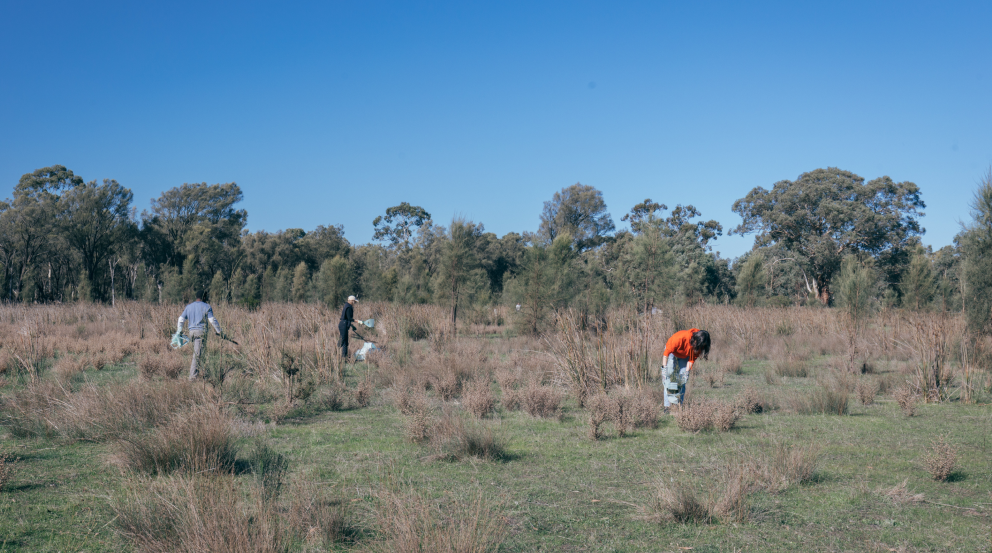Since we last spoke to Bank Australia customers Free to Feed back in May 2020, the social enterprise – which uses food as a platform to empower, employ and socially embrace refugees and people seeking asylum – has been hard at it.
As the year wraps up, the team is taking a moment to step back, collectively exhale and reflect on their wins – the most recent of which saw them quietly ticking over the $1 million milestone in paid wages to program participants.
This figure is backed up by some other impressive stats: since launching in 2016, Free to Feed’s programs have provided over 40,200 hours of paid hospitality training and 11,170 hours of paid leadership training. They’ve supported 128 participants from 38 distinct cultures. And if you’ve experienced Free to Feed’s signature hospitality, you’re in good company – over 30,000 members of the public have been welcomed into their experiences and events.
For co-founder Loretta Bolotin, the numbers only play a part in the bigger picture. “We hit this milestone, which for us is pretty incredible,” she says. “It's not just about the wages, it's about what that means for the individuals. It's a livelihood thing, and then in turn, [participants] support their families and communities as well.”

Over the years, Free to Feed’s food experiences have grown organically with the organisation. You can now get involved through community, corporate and private cooking classes, unique public and private dining events, the social enterprise’s catering arm, and venue hire of their Fitzroy North warehouse.
Free to Feed has also expanded and deepened their offerings for program participants, providing a range of flexible and supportive environments where people seeking asylum can sharpen their existing skills and learn new ones. They now provide accredited and pre-accredited training, employment and professional development programs, including a recently launched pre-employment program in collaboration with Box Hill Institute's Community Adult Education department.
It’s not just their range of programs that’s evolved. They’ve also changed their business model to focus on accommodating and honouring the diverse circumstances of their participants. As a result of having to urgently cross borders to seek safety, most of Free to Feed’s participants are in precarious situations and have complex mental health needs. Many are deep in the process of recovering and resettling, often without a financial safety net (45% of their 2022 cohort lack access to government support).

The need for meaningful employment is clear, but a job alone can’t break down the social, economic and mental health barriers faced by refugees. And while food is a great platform, it also comes with significant risks. “We started to see that there are a lot of triggers when you're working with food in particular,” Loretta says. “It's so evocative; it's filled with all of these memories.”
For people dealing with grief, loss or familial separation, those memories can be raw and painful. In response, Free to Feed now offers ‘wraparound’ emotional support for participants.
“We started to recognise that supporting people with their recovery from trauma needed to be led not just from employment, but from a place of mental health expertise,” Loretta explains. “It meant we had to change the whole way we work and increase access to social workers and mental health practitioners to help people with their holistic lives.”
The organisation hired a dedicated trauma-informed program manager who creates safety at every touchpoint, from making sure everything in the kitchen is labelled in a variety of languages, to avoiding the stereotypical breakneck-pace of a hospitality environment. While Free to Feed remains firm in their approach of using food as the centrepiece for connection, conversation and cultural exchange, they’re also equipping participants with tools to establish boundaries in shared social settings; to help them say no’ when a conversation is going in a direction they don’t want it to.
After all, Loretta and the team know it’s vital for people to control their own stories. Take Laila, a program participant from Kabul, Afghanistan who arrived in Australia earlier this year with two children and only a handful of English words. While participating in the Free to Feed leadership program, she self-taught herself English to the point where she’s now chatting to strangers on the tram and befriending her new neighbours (with generous plates of delicious Afghan food, mind you).

“Laila is adamant that she wants to share the story about Afghanistan, outside of what we know from the news,” Loretta says. “She really believes in that beautiful Afghan hospitality, and getting to represent that has been a healing process for her.”
It’s a story of success that exemplifies the outcome Loretta and her team want to help facilitate: balanced acculturation. “We don't want people to arrive and forget where they've come from,” she says. “But we also don't want them to be marginalised. So it's that sweet spot of being able to safely and confidently navigate and embrace Australian culture while retaining all of the things that are important to them – the heritage, traditions and food – from their original culture.”
You can check out Free to Feed’s 2022 impact report here.








